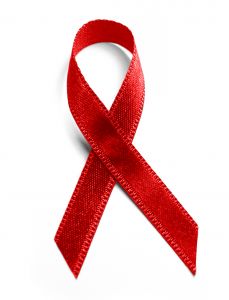Could an HIV Vaccine Lower the Economic Cost of AIDS?
 Promising news of an HIV vaccine this week has left many in the public health and HIV communities feeling hopeful. The latest study shows a 31% reduction in HIV transmission for people who received the vaccine, versus people who received a placebo. Researchers are understandably sharing their results with a note of caution, because although the results are statistically significant, they’re hardly enough to say that an HIV vaccine is a definite possibility in the near future. However, there is hope.
Promising news of an HIV vaccine this week has left many in the public health and HIV communities feeling hopeful. The latest study shows a 31% reduction in HIV transmission for people who received the vaccine, versus people who received a placebo. Researchers are understandably sharing their results with a note of caution, because although the results are statistically significant, they’re hardly enough to say that an HIV vaccine is a definite possibility in the near future. However, there is hope.
AIDS has had substantial impacts around the globe. It is estimated that 30-36 million people are living with HIV worldwide. More than 25 million people have died from AIDS since 1981; 1.8 – 2.3 million people died from AIDS in 2007 alone. It is unconscientable to me that we are 28 years into the AIDS epidemic and we still don’t have a cure. But I’ll leave that rant for another day.
Aside from the human costs, there are incredible economic consequences to the AIDS epidemic. According to an old article in the LA Times:
By 2000, the total cost to the global economy of the AIDS pandemic could reach $514 billion and, in the worst-case scenario, rob the world of 1.4% of its gross domestic product–the equivalent of wiping out the economy of Australia. In addition to the tremendous cost of health care, AIDS is directly affecting business around the world. The majority of cases strike adults in their most productive years. (AIDS is now the leading cause of death of 25- to 44-year-olds in the United States.)
These economic estimates only look at the big picture, but they fail to account for the economic burden that HIV places on the individual. HIV medications can be very expensive. Although there are many insurance and HIV assistance programs, they do not always cover the full cost of HIV medications. Some of those medications range from $300-$1100 per month. The cost of medication can be a huge hurdle for patients to jump, and it certainly puts treatments out of reach for those living in developing countries.
I hate to bring a dark cloud over the good news about the HIV vaccine trials. There are a lot of questions raised by the latest study, but the study may also provide answers that will help researchers better understand how HIV effects the body. However, it would be foolish to only rely on a vaccine to stem the tide of AIDS. We need to continue demanding comprehensive prevention programs that include safe sex education and condom distribution. Money spent on family planning and STI prevention is well worth the return on the investment. And I think that even the researchers in this study have said that counseling about changing risky behaviors is as likely to have contributed to the decrease in HIV transmissions rates as the vaccine.
For a quick explanation on how the HIV vaccine trials were conducted, click here. For more on the economic cost of AIDS, click here and here.
Photo credit: stock.xchng


Serena,
I’m taking a great course on HIV and Theology and referencing this article for the class. You have some great points. There are definitely a lot of troubling aspects to the vaccine story, unfortunately.